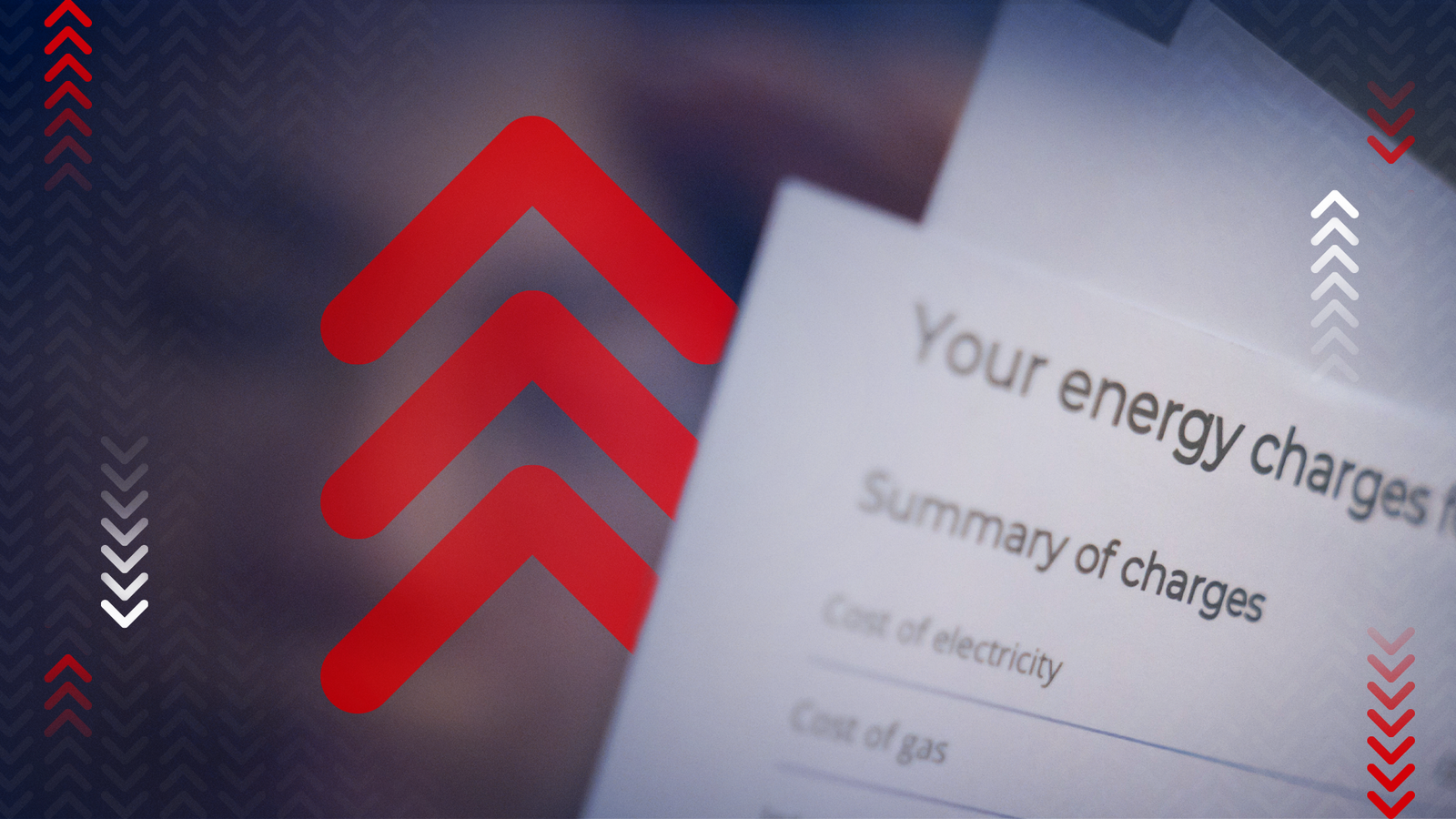Energy price cap falls significantly as Ofgem reveals new level for average bills

The energy price cap on household bills has fallen to an annual average of £2,074 between July and September, removing some of the financial pain inflicted by the unprecedented surge in gas and electricity costs.
Industry regulator Ofgem made the announcement against a backdrop of good news for the cost of living crisis – with wholesale energy prices falling.
They spiked last year after Russia’s invasion of Ukraine, which saw both oil and natural gas costs shoot up – a situation that was made worse by the imposition of sanctions on the Kremlin by Western governments.
The new cap figure compares to the £3,280 level set by Ofgem for March-June, meaning a £1,206 reduction in the cap from July and a reduction in average bills by £426 a year.
Latest:
Updates and reaction as new price cap announced
Why high energy prices are the new normal – despite price cap drop
However, that cap is currently irrelevant.
That is because the government’s energy price guarantee (EPG), which limits the amount suppliers can charge per unit of energy used, ran throughout the autumn and winter months and remains in force until 1 July.
That keeps bills at around an average annual level of £2,500.
There is no further taxpayer support on the table from July onwards.
Advertisement
The price cap, which is reviewed every three months, will take over again from then.
Current projections predict a stable outlook for energy bills at around the £2,000 level but such a sum remains more than £1,000 above the pre-pandemic average and much will depend on the potential for further wholesale market shocks.
Gas supplies remain the core worry for prices ahead.
Day-ahead wholesale costs peaked at an industry measure of 570p per therm last August but are currently at 66p.
Please use Chrome browser for a more accessible video player
0:38
Ofgem chief executive Jonathan Brearley speaks to Kay Burley
Longer term contracts are more expensive, with year’s end delivery at double that level at around 129p. That reflects the likelihood of increased demand as winter approaches.
Ofgem’s chief executive said it is “very, very hard” to predict future energy prices.
“Every prediction on the market has turned out to be substantially wrong,” Jonathan Brearley told MPs at the Public Accounts Committee on Thursday morning.
His “best guess” is prices will continue to come down but he stressed he could only guess.
Mr Brearley added he hopes prices continue to fall but said that it only takes one global event to bring prices up again.
The cost of living crisis is set to linger.
While fuel bills have fallen back – with energy now set to follow – the latest inflation data showed food costs continuing to rise at an annual rate of almost 20%.
Economists have pointed to a rise in so-called core inflation, which strips out volatile elements such as food, as putting further pressure on the Bank of England to maintain its cycle of interest rate hikes.
They make the immediate pressure on budgets worse by adding to borrowing costs but are designed to dampen demand, and therefore prices, in the economy in the longer term.